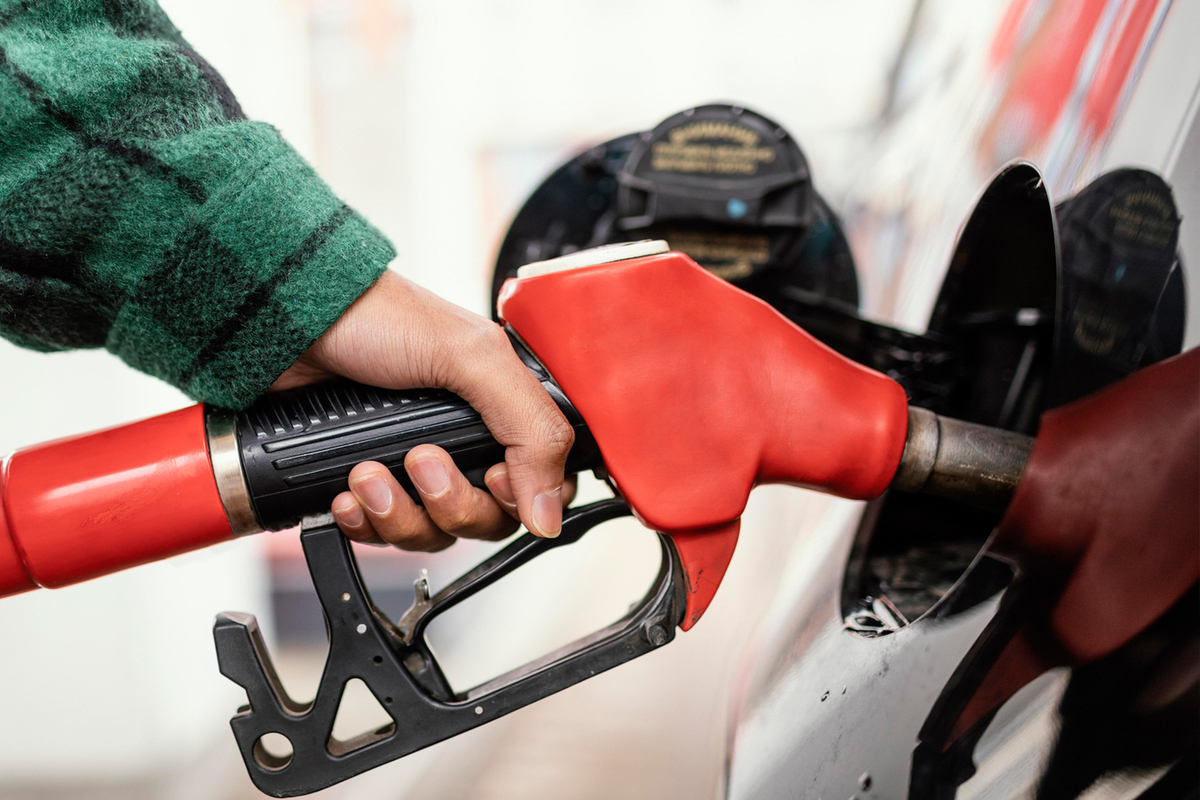Is Russia facing a gasoline shortage: experts assess the threat
[ad_1]

Tensions in the Russian fuel market, heightened by drone attacks on refineries, are forcing authorities to take countermeasures. The list of necessary steps was discussed at a meeting with the participation of Deputy Prime Minister Alexander Novak on Friday, March 22. The Deputy Chairman of the Government instructed oil companies, together with railway workers, to ensure uninterrupted export of petroleum products and loading of refineries in accordance with growing spring demand. Prices for agricultural producers for fuel at the beginning of spring field work should not exceed market indicators. Previously, independent experts warned that by the summer the country risks facing a gasoline shortage. How serious the threat is and whether the government can prevent a negative scenario is in the material from MK.
As noted in the economic department of the Institute of Energy and Finance (IEF), the oil refining sector suffered a double blow in 2024. These are sanctions and drone attacks. The former make it difficult to carry out repairs (scheduled and unscheduled) at oil refineries, while the latter increase the number of damages. The problem is that since Soviet times, equipment for domestic refineries has been purchased abroad, and today the share of imported equipment, mainly high-tech, exceeds 50%.
And it is still unknown whether it will somehow be possible and how quickly to find a replacement for the damaged equipment. The fundamental solution seems to be so-called “reverse engineering”, that is, the development of complete analogues of Western devices, but this will take years. And parallel import is complicated by the fact that the components required are atypical and rare, and there is essentially nowhere to get them. According to experts, repair work only at the Nizhny Novgorod refinery, where the catalytic cracking unit has failed, will take at least 1-1.5 months – under the most favorable circumstances.
Meanwhile, gasoline production in Russia in the week from March 11 to March 17, according to Rosstat, decreased by 2.8% (to 815.3 thousand tons) compared to the previous week. Diesel fuel production decreased by 2.5% – to 1 million 638.8 thousand tons. The growth of exchange fuel prices also accelerated, reaching new highs for the year. On Thursday, March 21, AI-95 gasoline rose in price on the St. Petersburg International Commodity Exchange to 66,421 rubles per ton (plus 1.56%), AI-92 – to 53,429 rubles (plus 1.74%) , summer diesel fuel – up to 66.547 rubles per ton (plus 0.41%). Prices have been rising non-stop for ten days now – against the backdrop of news of a military rather than an economic nature. Last week, as a result of attacks by Ukrainian drones, fires were recorded at a refinery in the Kstov industrial zone of Nizhny Novgorod, at an oil refinery in Ryazan, and at the Novoshakhtinsky petroleum products plant in the Rostov region. All these enterprises are among the largest in the country.
At the Friday meeting, which was chaired by Alexander Novak, the discussion was, in particular, about how to ensure stability in the supply of petroleum products to the domestic market in the current situation, how not to disrupt the schedule of shipments to agricultural producers, and how to prevent prices from rising at gas stations. Meanwhile, the head of the Ministry of Energy Nikolai Shulginov recently reported that since the beginning of the year, oil refining volumes in Russia have decreased by about 7%. “We must take into account, among other things, the OPEC+ recommendation on production; based on our obligations, we will determine the amount of exports,” the minister noted.
“Today, the domestic market is fully supplied with fuel,” says Sergei Pikin, director of the Energy Development Fund. – We have a colossal overproduction of diesel fuel; almost half of the output is exported. The situation with gasoline is different – not so good, but we also sell much less of it abroad. Plus, stocks have accumulated. The key issue is not related to production, not to reserves and not to exports, but to logistics. There are dozens of oil refineries throughout the country. Including those that are not at full capacity and can increase output. The task of the government and Russian Railways is to establish logistics in such a way that fuel is delivered in a timely manner, without delays, from production sites to those points where it is most needed.”
As for the situation with unscheduled repairs, it is very difficult to assess the situation from the outside. To do this, you need to know exactly what spare parts the companies that own the refineries have, whether they have the opportunity to make up for the shortage through parallel imports or not, argues Pikin. But it is known that the degree of damage caused to the oil refining sector is not critical: in percentage terms, it is even less than the potential volumes of gasoline exports.
“Since the beginning of March, we have had a government ban on the export of gasoline,” recalls Igor Nikolaev, chief researcher at the Institute of Economics of the Russian Academy of Sciences. – that is, all our gasoline is currently used exclusively for internal purposes. I think this factor will keep prices from rising further in the coming months. Now we are observing, rather, an emotional reaction of the market to the events of March: the attacks on refineries were massive and occurred in a matter of days. The primary effect usually happens like this – a reduction in production and an increase in stock prices. I don’t believe in continuation. Of course, no one is immune from force majeure, from “black swans”. But that’s why they are called that, because no one knows whether they will arrive or what they will ultimately look like?”
[ad_2]
Source link






